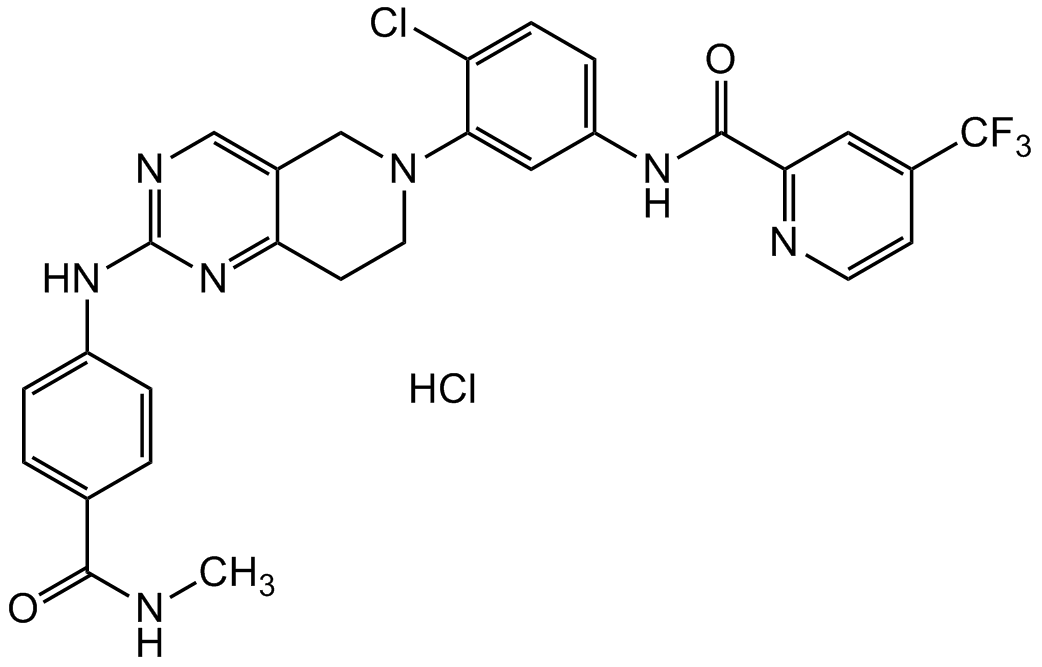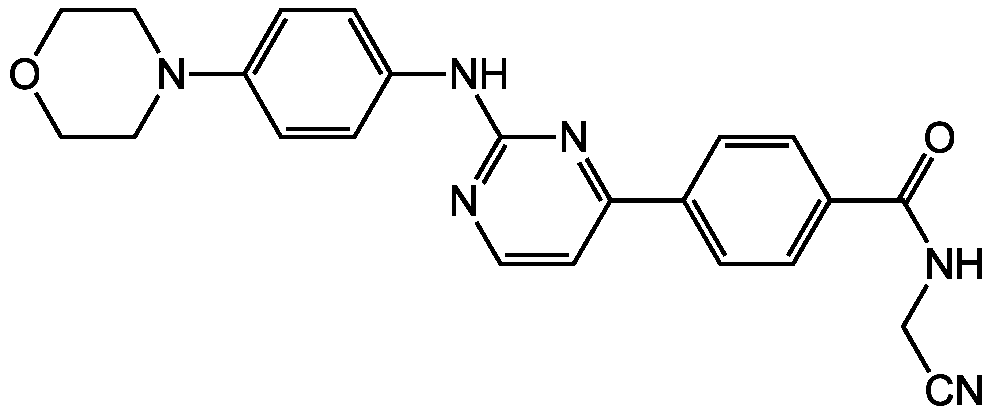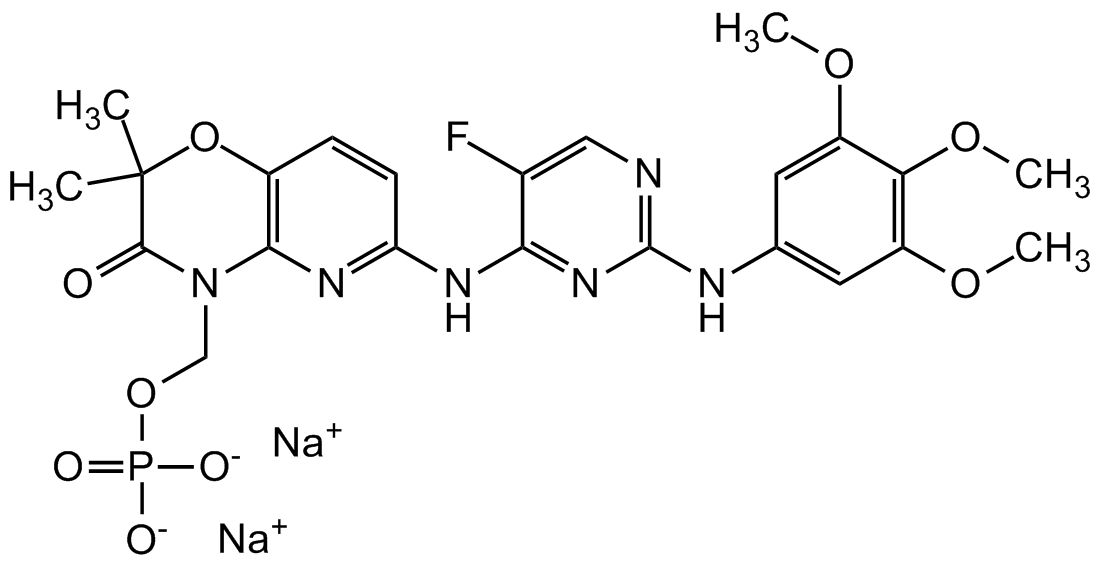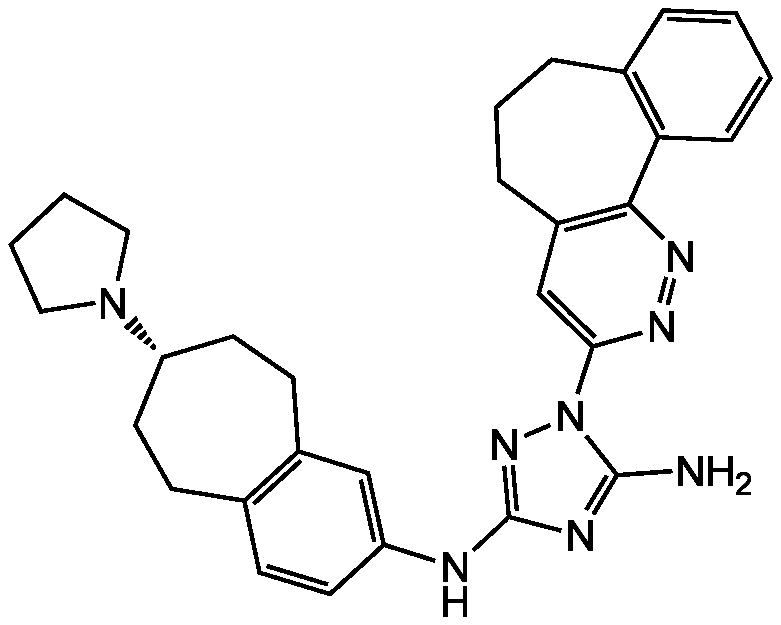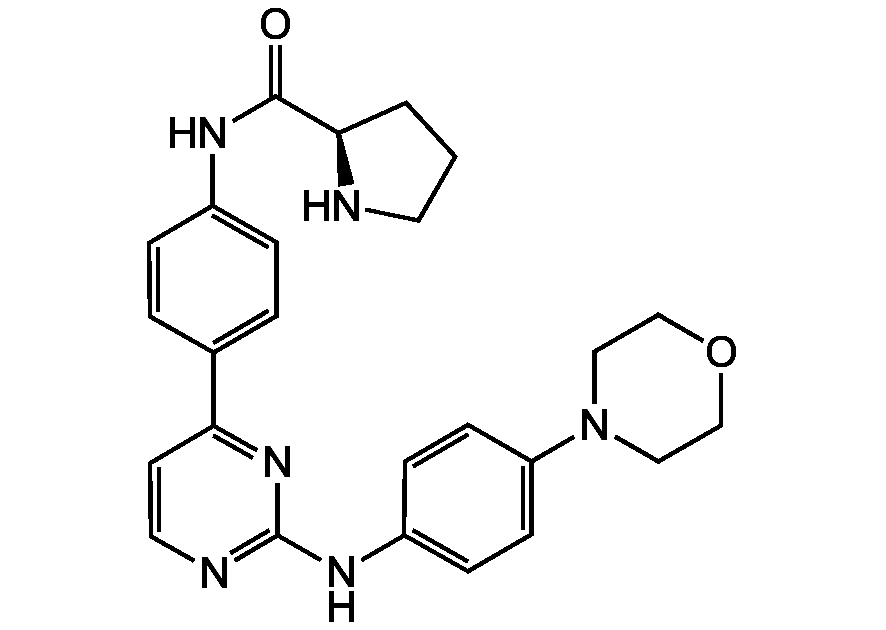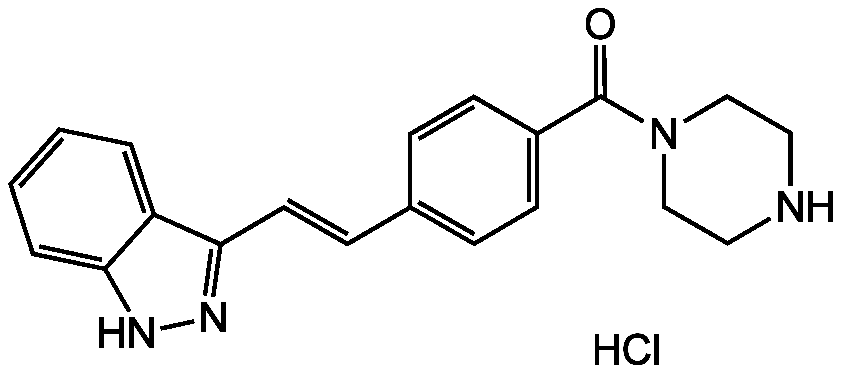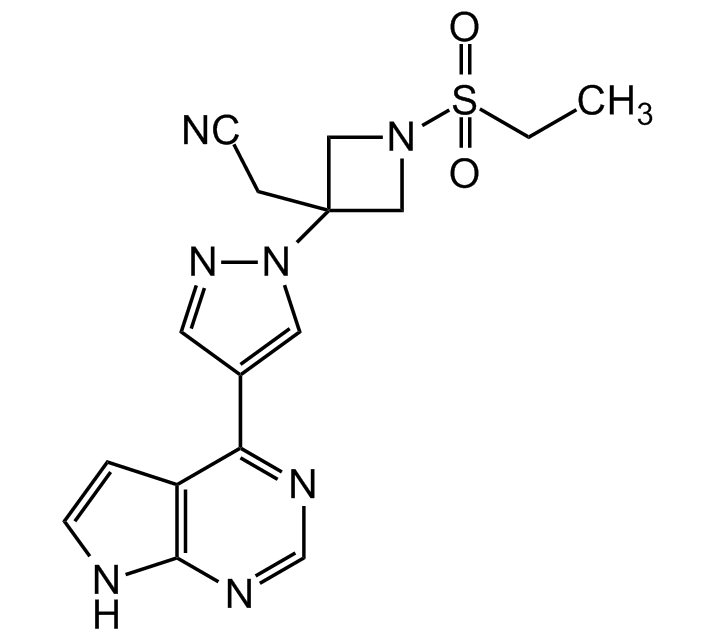
Chemical Structure
Baricitinib [1187594-09-7]
AG-CR1-3734
CAS Number1187594-09-7
Product group Chemicals
Estimated Purity>98%
Molecular Weight371.4
Overview
- SupplierAdipoGen Life Sciences
- Product NameBaricitinib [1187594-09-7]
- Delivery Days Customer10
- CAS Number1187594-09-7
- CertificationResearch Use Only
- Estimated Purity>98%
- Hazard InformationDanger
- Molecular FormulaC16H17N7O2S
- Molecular Weight371.4
- Scientific DescriptionBaricitinib is a selective orally bioavailable JAK1/JAK2 inhibitor with nanomolar potency against JAK1 (IC50 = 5.9nM) and JAK2 (IC50 = 5.7nM) and inhibits Tyk2 (IC50 = 53nM). It displays >100-fold selectivity for JAK1/2 over JAK3 (IC50 > 400nM). Janus kinases (JAKs) are non-receptor kinases and play important roles in the proinflammatory signaling pathways that are frequently over-activated in autoimmune disorders such as rheumatoid arthritis. Upon binding of extracellular cytokines and growth factors, JAKs are phosphorylated and activate signal transducers and activators of transcription (STATs). Via these signaling cascades, inflammatory cytokine and chemokine transcription is induced to form inflammatory mediators including IL-2, IL-6, IL-12, IL-15, IL-23. Baricitinib inhibits intracellular signaling of multiple proinflammatory cytokines including IL-6 and IL-23 at concentrations 100-fold selectivity for JAK1/2 over JAK3 (IC50 > 400nM). Janus kinases (JAKs) are non-receptor kinases and play important roles in the proinflammatory signaling pathways that are frequently over-activated in autoimmune disorders such as rheumatoid arthritis. Upon binding of extracellular cytokines and growth factors, JAKs are phosphorylated and activate signal transducers and activators of transcription (STATs). Via these signaling cascades, inflammatory cytokine and chemokine transcription is induced to form inflammatory mediators including IL-2, IL-6, IL-12, IL-15, IL-23. Baricitinib inhibits intracellular signaling of multiple proinflammatory cytokines including IL-6 and IL-23 at concentrations <50nM. It inhibits IL-6 receptor signaling, IL-6-induced STAT phosphorylation and subsequent pro-inflammatory chemokine (MPC-1) and cytokine (IL-17 and IL-22) production in PBMCs and T cells and displays anti-inflammatory and disease modifying effects in the rat adjuvant arthritis model. It also has been shown to block MSU-induced inflammasome activation. Baricitinib has potential application in various inflammatory disorders, including rheumatoid arthritis and systemic lupus erythematosus (SLE). The majority of viruses enter cells through receptor mediated endocytosis. Baricitinib potently inhibits AP-2 associated protein kinase 1 (AAK1) and also binds cyclin G-associated kinase, both regulators of endocytosis. Inhibiting AAK1 might interrupt the passage of the SARS-CoV-2 virus into cells and also the intracellular assembly of virus particles. In addition the drugs anti-inflammatory activity is expected to act on the inflammatory cascade associated with COVID-19.
- SMILESCCS(N(C1)CC1(CC#N)N(N=C2)C=C2C3=NC=NC4=C3C=CN4)(=O)=O
- Storage Instruction-20°C,2°C to 8°C
- UNSPSC12352200

